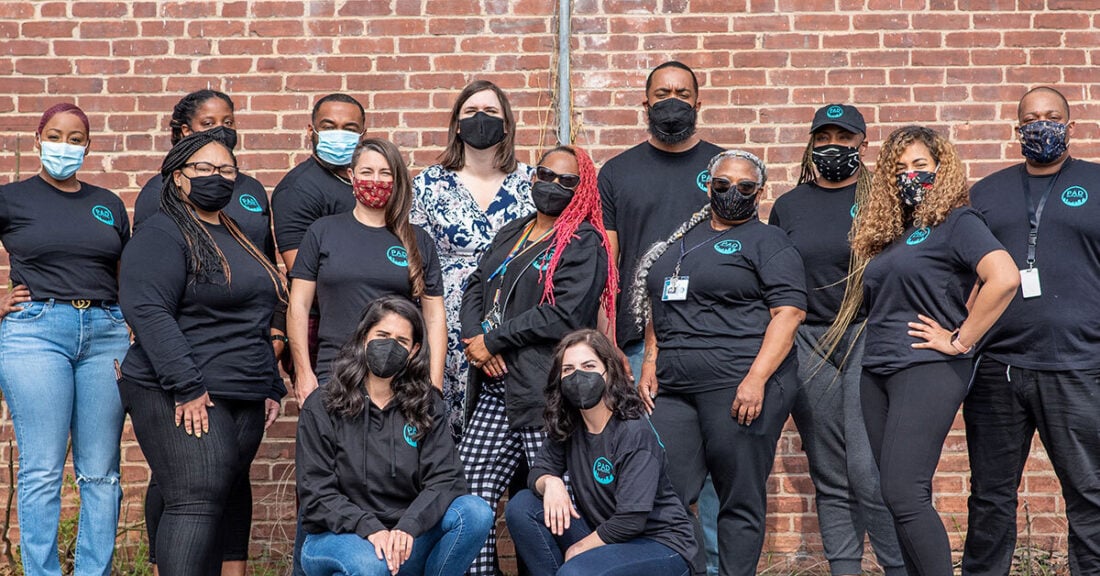Offering an Alternative to Police Arrests in Atlanta

Half of the arrests made by the Atlanta Police Department between 2013 and 2021 were for low-level violations, such as drug use, public intoxication, solicitation, disorderly conduct and loitering, according to the Police Scorecard project.
Since 2017, the Policing Alternatives and Diversion (PAD) Initiative — which is funded by the Annie E. Casey Foundation — has connected Atlanta residents with community-based resources and helped them avoid arrests or jail time.
“The pre-arrest diversion work PAD is pioneering in Atlanta demonstrates how communities can address issues like housing instability and community safety with empathy and compassion,” said Amanda Jaquez, a senior associate with the Annie E. Casey Foundation’s Atlanta Civic Site. “This initiative not only helps people avoid potentially life-altering interactions with law enforcement, but it also helps Atlanta residents who may be struggling with homelessness, mental illness or other challenges receive the help they need.”
Reimagining First Responders
PAD was launched in the Atlanta Police Department’s Zone 5, which covers most of downtown Atlanta as well as neighborhoods near Georgia State University, Georgia Tech and midtown. It now covers the entire city.
PAD executive director Moki Macías is the former director of Community Building for the Casey Foundation’s Atlanta Civic Site. “I learned so much from organizing with neighbors to advance community-based solutions during my time with Casey,” Macías said. “Everything required for a healthy community — quality housing, welcoming public amenities and greenspace, access to jobs and a safety net for those who need it — is also what makes a community safe. Punishing people when they don’t have these basic resources is a failed approach, which is why we need alternatives like PAD.”
Atlanta police officers are encouraged to refer individuals who need help with substance use, poor mental health or extreme poverty to PAD. The initiative also encourages community members to call 311 and request PAD when they see someone in crisis or who may need help.
In its first year, PAD diverted 69 individuals from jail to community services. Through direct police action and staff located in emergency call centers, the organization now responds to approximately 200 requests for help each month.
“Arresting people for unmet needs is simply not humane or sustainable,” said Denise White, PAD’s deputy director. “Once someone comes into our care, our community response team works with them to identify their basic needs and how we can offer immediate help. In some cases, they are connected to a care navigator who helps with their long-term needs, such as substance use treatment, counseling and access to housing.”
Recently, PAD began offering classes that focus on anger management and social-emotional skills building. In 2023, it opened a food pantry in partnership with the Atlanta Community Food Bank. At PAD’s new Community Services Center, people can rest, charge their phones or access social services.
What’s Next for PAD?
This fall, PAD will celebrate the opening of Atlanta’s first diversion center. This facility — open 24 hours a day, seven days a week — is operated by Grady Memorial Hospital in partnership with PAD and Georgia Justice Project. It offers new services that include:
- A “sobering center” for those who are struggling with drug or alcohol addiction or withdrawal. The center will provide medical supervision, beds for rest and emergency transportation if needed.
- A warrant clinic to help people with missed court dates. Attorneys with Georgia Justice Project will work with local courts to help individuals reschedule existing court appearances and avoid bench warrants.
PAD will offer its long-term care navigator through the diversion center, which also has one unusual feature. “When someone enters the center, the first thing they’ll notice is the smell of fresh popcorn,” said Macías. “I know that may sound strange, but we wanted a scent that’s instinctively comforting. The people walking through these doors are likely scared or exhausted and we want them to feel not just allowed to be here, but truly welcome.”





